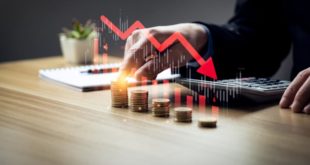The Henry Hazlitt Memorial Lecture, sponsored by Harvey and Mei Allison. Recorded at the 2023 Austrian Economics Research Conference hosted at the Mises Institute in Auburn, Alabama, March 16–18, 2023. [embedded content] The Austrian Economics Research Conference is the international, interdisciplinary meeting of the Austrian School, bringing together leading scholars doing research in this vibrant and influential intellectual tradition. The conference is...
Read More »No, We Don’t Need More Nuclear Weapons
Advocates for more military spending tell us the taxpayer must pay to expand the US's nuclear arsenal. Because of China. In truth, the US's arsenal is in no danger of not "keeping up." Original Article: "No, We Don't Need More Nuclear Weapons" This Audio Mises Wire is generously sponsored by Christopher Condon. [embedded content]...
Read More »Does Cost Cutting Undermine Economic Growth?
Keynesian economists claim that cost cutting by companies in order to protect profits can lead to an economic slump. They believe that if everyone tries to cut costs, demand from retrenched workers for goods and services weakens, and as a result corporate revenues and profits come under pressure. This necessitates new layoffs, and the downward spiral accelerates. Popular thinking presents economic activity as a circular flow of money: spending by one individual...
Read More »Defending Private Property: Principles of Justice in Rothbard’s Ethics of Liberty
The Murray N. Rothbard Memorial Lecture, sponsored by Steven and Cassandra Torello. Recorded at the 2023 Austrian Economics Research Conference hosted at the Mises Institute in Auburn, Alabama, March 16–18, 2023. [embedded content] The Austrian Economics Research Conference is the international, interdisciplinary meeting of the Austrian School, bringing together leading scholars doing research in this vibrant and influential intellectual tradition. The...
Read More »Why Fractional Reserve Banking Is behind Bank Failures
Drug addicts suffer major withdrawal symptoms when they go cold turkey. In the case of high-tech startups and their banks (like Silicon Valley Bank), the super-low-interest-rate stimulant has been taken away by the drug dealer (the Fed) via interest rate hikes. With cheap credit drying up, firms switched to pulling cash out of SVB, all while the same interest rate increases caused the value of SVB’s assets to fall. SVB’s balance sheet couldn’t handle the fast...
Read More »The Bank of England: Money Creation in Their Own Words
Central banks usually don't admit their guilt in the destruction of money, but the Bank of England unwittingly comes clean. Original Article: "The Bank of England: Money Creation in Their Own Words" This Audio Mises Wire is generously sponsored by Christopher Condon. [embedded content] Tags: Featured,newsletter
Read More »The Last Lie Government Will Ever Tell
The more powerful a government, the more likely it is to engage in war and conquest. Case in point: US involvement in Ukraine. In 2014 the US led a coup that displaced a “democratically elected” president, Viktor Yanukovych. In November 2013, . . . Yanukovych rejected a major economic deal he had been negotiating with the EU and decided to accept a $15 billion Russian counteroffer instead. That decision gave rise to antigovernment demonstrations that escalated over...
Read More »Socialism Isn’t about Creating Economies. It Is about Amassing Political Power
Most socialists are not misguided about how to have a prosperous economy, for that is not their goal. Original Article: "Socialism Isn't about Creating Economies. It Is about Amassing Political Power" This Audio Mises Wire is generously sponsored by Christopher Condon. [embedded content] Tags: Featured,newsletter
Read More »Influencers and Subjective Value: They Have Something to Teach Us
The latest from the world of social media is the role of "influencers." There is a perfectly good economic explanation for their popularity. Original Article: "Influencers and Subjective Value: They Have Something to Teach Us" This Audio Mises Wire is generously sponsored by Christopher Condon. [embedded content] Tags:...
Read More »How Banking Could Work
With commercial banks exposed by the recent bailouts, Americans question whether “their money” is truly safe despite the promises of FDIC insurance. Jeff and Bob walk through the mechanics of how a full reserve bank could work in a truly free market based on the concepts and taxonomy of Mises’s Theory of Money and Credit. Mises's A Theory of Money and Credit: Mises.org/TMC Bob's study guide to A Theory of Money and Credit: Mises.org/HAP388a John Cochran, 'The Safest...
Read More » Swiss Economicblogs.org
Swiss Economicblogs.org



